If you do your own grocery shopping or you’ve been to a supermarket recently, you’d be aware that pasteurized milk has monopolized the dairy section. Having been around since the late 1800s, pasteurized milk has been widely utilized by the population because of the “safety” it provides, as it’s said to minimize the risk of contracting milk-borne bacteria and diseases.
But while this may seem like a plausible idea, pasteurization has been observed to lower or even extinguish the nutrients found in milk. Aside from this, toxins and other harmful chemicals have also been introduced to conventional pasteurized milk, which compromises your health instead of providing a better choice.
Continue reading to learn more about pasteurized milk, the detrimental effects it may have on your body and why raw milk is a better choice.
What Is Pasteurized Milk?
Pasteurization was first introduced in the late 1800s, and was pioneered by Louis Pasteur after his study on the fermentation process of both wine and vinegar. After discovering the difference in the microbes in both substances, he developed the process, determining the exact time and temperature microbes die.
Pasteurization was first applied to dairy products after the spread of numerous milk-borne infections in the population. It refers to the heating of milk to a temperature higher than the boiling point, and then rapidly cooling it.
This process supposedly removes the bacteria and other harmful particles found in conventionally produced milk. However, what government health agencies have left out is that pasteurization renders essential enzymes and nutrients inactive.
Conventional Milk May Also Be ‘Ultra-Pasteurized’
In addition to this, milk producers have also devised another process for milk production, a process called ultra-heat treatment (UHT), which produces ultra-pasteurized milk. Nowadays, you’ll notice that most milk, including organic milk, bear the label “UHT.” Milk that is labeled as such is thermally processed at or above 280 degrees Fahrenheit, in contrast to pasteurization, which heats the milk at about 161 degrees Fahrenheit. This prolongs its shelf life under refrigerated conditions.
While a small amount of bacteria can survive the process of pasteurization, ultra-pasteurization produces a nearly sterile milk product. This means that ultra-pasteurized milk can last from 30 to 90 days when unopened, which is good news for milk producers because they can ship to a larger population without the risk of spoilage.
But is ultra-pasteurized milk good for you? No, it isn’t. Because of the extreme process, ultra-pasteurized milk contains fewer nutrients than pasteurized milk, and even fewer when compared to raw milk. Researchers and microbiologists have also said that ultra-pasteurization is extremely harmful to milk, as it was found to flatten milk molecules and cause immune responses in the body when digested.
Raw Milk Versus Pasteurized Milk: Which Is Safer and Healthier?
The debate between raw milk and pasteurized milk has plagued the public for numerous years because of both safety and health issues on both sides. Processed milk advocates claim that the pasteurization is essential to avoid the recurrence of milk-borne diseases such as brucellosis, listeriosis and typhoid fever. They also claim that aside from preventing bacterial infections, pasteurization can lengthen the shelf life of milk.
But although pasteurized milk is highly recommended and advertised by both the CDC and FDA, the talks of its safety are questionable. While raw milk enthusiasts are commonly lambasted because they supposedly “expose themselves to a higher risk of milk-borne bacteria,” pasteurized milk consumers actually have a higher chance of ingesting chemicals and other toxins from conventional dairy factories.
Because of pasteurization and other filtering processes, factory milk producers are allowed to raise cows in unhealthy, cramped environments, where they are fed an unnatural diet of grains and corn. This is mainly because they are dependent on pasteurization’s ability to kill off pathogens or filter antibiotics that may have leaked into their milk products.
But while they claim that this is entirely safe, the nutrient content and the overall quality of these milk products may be compromised. Pasteurization removes the essential nutrients and compounds that are beneficial to the human body. Studies show that this process deactivates the enzymes that are necessary for the human digestion of milk, kills off the good bacteria that may be beneficial to the human body, alters the calcium content and removes most of the vitamin C in raw milk.
By switching to raw milk, you ensure that you get a whole food filled with minerals, proteins, vitamins and beneficial bacteria that assist digestion and metabolism.
The only issue that is often held against raw milk is that it supposedly increases your risk of ingesting pathogens or harmful bacteria, but this can easily be dealt with by locating and sourcing your raw milk from trustworthy producers. Organic, pasture-raised dairy cattle guarantee that you get safe and high-quality raw milk, in contrast to the antibiotic-treated cattle used in concentrated animal feeding operations (CAFOs).
Possible Side Effects and Dangers of Pasteurized Milk
Due to the numerous chemically manipulated components of pasteurized milk, it may pose numerous threats to your health. This includes the hidden exposure to pesticides, drugs and other harmful chemicals that may have seeped into the milk. The other dangers of the consumption of pasteurized milk include:
- Exposure to hormones and antibiotics. A 2011 research tested various milk products for chemicals that may have contaminated the product. It showed that conventionally sourced milk had high amounts of antibiotics, anti-inflammatories, natural hormones, anti-malaria drugs, steroid hormones, and anti-fungal drugs. This is probably because of the exposure of the cattle to these chemicals inside CAFOs.
Antibiotics are usually given to cattle to treat mastitis, but this eventually seeps into the milk produced by these cattle. The consumption of this type of milk eventually leads to you to acquire these harmful chemicals that aren’t even supposed to be in milk.
- Ingestion of glyphosate. Glyphosate is a chemical component of Roundup, a pesticide and herbicide that is usually applied to genetically engineered crops, which are then fed to the cattle. Aside from the possibility of glyphosate contamination in the milk that these cattle produce, you are also exposed to the altered composition of the milk because of the unnatural way that these dairy cows are fed.
- May increase asthma risk. Studies show that pasteurization alters the composition of commercially available milk. Instead of preventing the development of asthma by stabilizing mast cells and preventing inflammation, pasteurized milk destabilizes the mast cells and triggers the release of histamines, causing inflammation and eventually, asthma.
- May lead to bone wasting or osteoporosis. Milk has always been packaged as the primary source of calcium, helping preserve bone density and skeletal health. However, pasteurization has been observed to destroy phosphatase in milk, an enzyme that is crucial for the absorption of calcium. This renders the calcium in milk indigestible and basically useless.
While pasteurization was initially done to protect the population, the process has allowed dairy corporations to hide unnatural and chemically-based milk production processes. Instead of providing a healthier and safer choice for people, pasteurized milk has become a lesser version of what milk is supposed to be, endangering the public and simultaneously depriving people of vitamins and minerals that are absolutely essential for your body.
Instead of consuming pasteurized or UHT-labeled milk, consider switching to raw milk to ensure that you get all the nutrients and enzymes that are supposed to be in dairy. This will guarantee that you’re getting whole and healthful milk, in contrast to its sterile counterpart.
Frequently Asked Questions (FAQs) About Pasteurized Milk
Q: When did pasteurization of milk start?
A: Before pasteurization was developed by Louis Pasteur, William Dewes proposed the heating of milk before feeding infants during the prevalence of milk-borne diseases. It was only knowingly applied to milk in the late 1880s by dairy producers.
Q: Is organic milk pasteurized?
A: Unfortunately, most brands of organic milk in the United States are still pasteurized. But although most of the organic milk available still undergoes this damaging process, studies show that it is still a better choice compared to conventional homogenized or pasteurized milk.
Q: Is cultured milk pasteurized?
A: Yes. According to the regulations that are enacted by the FDA, the production of cultured milk requires the addition of microbial culture to pasteurized or homogenized milk.
Q: Is pasteurized milk sterile?
A: Not entirely. Pasteurization kills off a significant amount of the pathogens found in milk. There are instances where a small amount can survive this process. UHT, on the other hand, processes the milk to the point that the milk is virtually sterile.
Q: Is pasteurized milk safe to drink?
A: Despite claims of its safety, pasteurized milk can expose you to different harmful toxins that may have seeped into the milk, especially if the pasteurized milk comes from conventional dairy farms. It should be noted that pasteurized milk contains a lower concentration of the beneficial components found in unprocessed and raw milk.
Q: Is pasteurized milk safe during pregnancy?
A: Because of the possible chemical components of pasteurized milk, its consumption may cause different repercussions for both you and your unborn child. Consider drinking raw milk from trustworthy distributors so that you can get the whole array of nutrients and enzymes in milk, without the risk of exposing yourself to possible toxins in conventional milk products.
Q: Is raw milk better than pasteurized milk?
A: Yes raw milk is the highest quality milk you can get. Nutritionally, raw milk contains active enzymes, vitamins and minerals, which are deactivated in pasteurized milk. Consumption of raw milk also ensures that you do not unknowingly expose yourself to possible harmful components found in pasteurized milk.

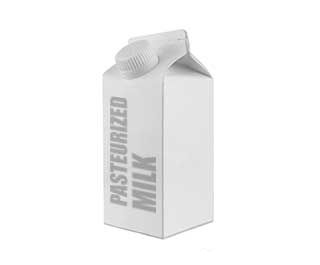
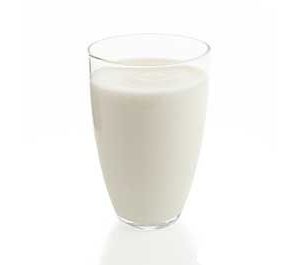
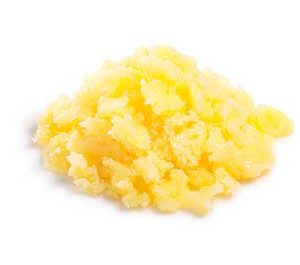
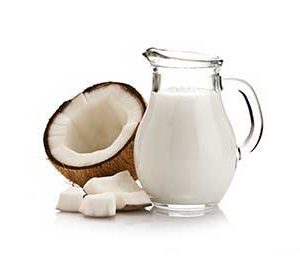
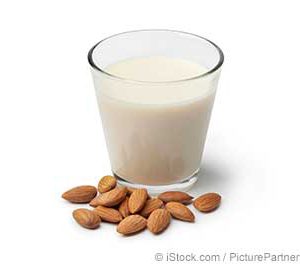
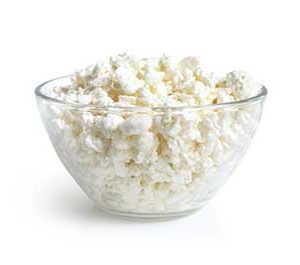
Reviews
There are no reviews yet.